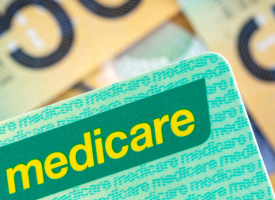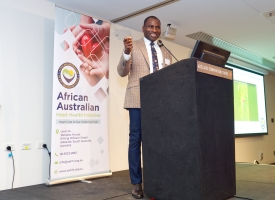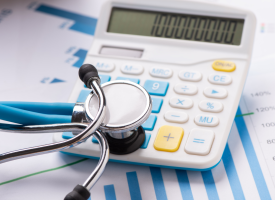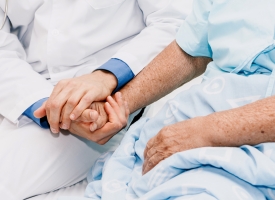Pill testing a chance for education
Pill testing is a way to protect young people at a time of experimentation and new freedom, AMA Queensland President Dr Nick Yim has told 3AW. "Research does suggest that when people do get their pills tested, 16 per cent of those individuals actually dispose of those pills. Another 25 per cent of those people who do enter the pill-testing facilities are referred to another healthcare professional, such as a GP, to have a discussion with regards to their drug use."
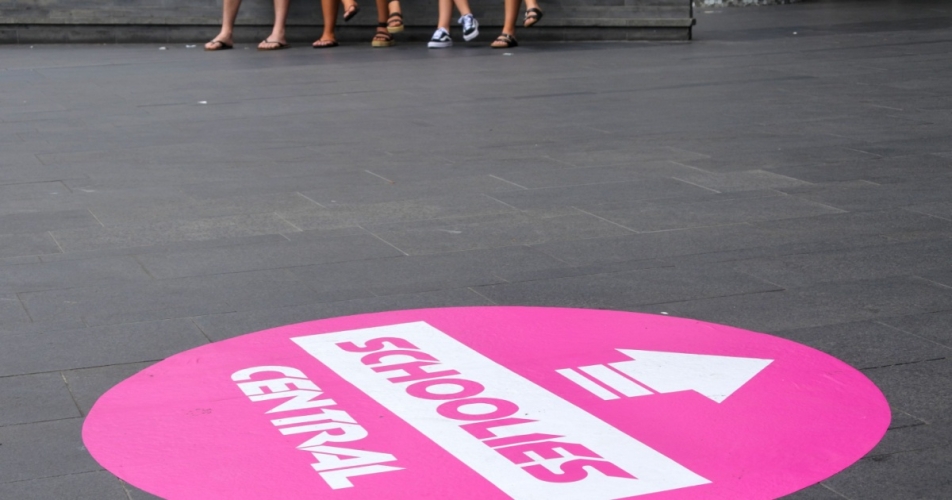
Transcript: AMA Queensland President, Dr Nick Yim, 3AW, Afternoons with Tony Moclair, Thursday 7 November 2024
Subjects: Pill testing at Schoolies
TONY MOCLAIR: You might have grandkids, you might have kids, you may yourself be heading off to Schoolies at the conclusion of your schooling, which is not far off, I can assure you. Well, if your kids are in Queensland, there is a new service that's going to be offered to school leavers this year who choose to attend Schoolies on the Goldie. This is despite the government saying that it sends, quote, ‘the wrong message about drug use in the community’. And by government, I mean the Queensland Government. The Gold Coast is home to Australia's largest Schoolies celebration, where more than 20,000 school leavers visit the city from mid-November, with many flocking to the party precinct of Surfers Paradise - the place where I had my first ever Big Mac - particularly from Melbourne schools. And I can say I have a son who will be going to Schoolies, but not in Queensland. He's staying local.
Nonetheless, the same issues still apply to parents when you send your kids off. Pill testing is now a thing. Are you happy with it? What is your point of view on it? Do you think it sends the green light to drug consumption? Or is it just a safety or preventative measure that is just very common sense and reflects the reality that kids will do drugs? And they'll do them in a lot of cases because of alcohol taxation and the effect that has had on the price of alcohol. They're not mugs. They know a cheaper way to a good time when they see it. And that's the sad reality. If you make alcohol less affordable, kids will seek options if they're inclined to do so. It's an issue that divides the community, but it's something that clearly, we could be seeing become more common. Do you agree with it or does it send the wrong message, as the Queensland Government says? Joining me, Dr Nick Yim, Australian Medical Association Queensland President. Good afternoon, Nick.
DR NICK YIM: Good afternoon, Tony.
TONY MOCLAIR: The reality is governments are somewhat between a rock and a hard place here. Australia is one of the biggest drug markets in the world. That's on us. And drug use is pervasive, especially amongst youth. Or am I painting too depressing a picture?
DR NICK YIM: You've highlighted some important points there, Tony. Obviously, we do see a lot of people coming up to Queensland for Schoolies on the Gold Coast, and we must all acknowledge that drug use is amongst our community, whether you live in Melbourne or live on the Gold Coast. At the end of the day, we know that drugs are illegal. At the same time, many of the drugs are not safe. A pill-testing service provides an opportunity for people to get their pills tested in a safe environment, but also at the same time to provide education regarding drug use, alcohol use and supports for that individual. Because we know drug use is quite a complex problem.
TONY MOCLAIR: Nick, I know the Queensland Government, the incoming Liberal government, has said, ‘look, we wouldn't have approved this. However, wheels are already in motion and we don't want to cancel the contract’. Something completely unknown to a Victorian - that's a side issue. Do you think that we will see a regime of pill testing in Queensland with the next major event or Schoolies next year? Or has the incoming government said we'll allow it this year, but we're going to review things next year?
DR NICK YIM: AMA Queensland has a great working relationship with the Queensland Government so we'll continue to liaise with them and emphasise the point that healthcare decisions should be based on evidence. Research does suggest that when people do get their pills tested, 16 per cent of those individuals actually dispose of those pills. Another 25 per cent of those people who do enter the pill-testing facilities are referred to another healthcare professional, such as a GP, to have a discussion with regards to their drug use.
TONY MOCLAIR: What is the attitude of people taking pills to Schoolies? Is it, as I said earlier, because it's cheaper than alcohol? Or are they caught up in a certain amount of peer group pressure? Why are they opting to do something illegal, which is to take drugs?
DR NICK YIM: You've highlighted a few points there. I was young as well, I grew up on the Gold Coast, and when people do complete schooling, they’re in that phase of their life where they can be curious, they might be experimental, peer pressure as you say. It's one of those situations that we know that drugs are available in the community, and we do want to provide opportunities as a stepping point as well, to provide education to them, support as well. Obviously, we have parents, schools, friends, family. Pill testing is another service that is available to provide that education for that individual.
TONY MOCLAIR: All right. I want to put a scenario to you. And it's one that no doubt you've reflected on. Someone gets a pill tested, the pill is passed as safe and then they subsequently die after taking it or, you know, are incapacitated permanently. What happens then?
DR NICK YIM: I think to reiterate, it's not determining whether the pill is safe or not, it's to determine whether the product that they've purchased is actually what it is. We know that many products have different ingredients and it may not say what it really is. And there's already a lot of synthetic compounds. At the start of the year in Victoria at a music festival, there was a large number of people who had to go to emergency because of overdose, and unfortunately, I think one person did pass away. So, these are the things that we want to prevent because we don't want children and young adults having long-term harms or even death from taking drugs.
TONY MOCLAIR: Okay, that's a medical perspective, I would hope, because you don't know what you're ingesting, you don't know how it's been made, and you don't know the possible side effects of what you're taking. So, does that mean the AMA, as far as Queensland goes, would strongly recommend against taking drugs?
DR NICK YIM: Absolutely. We know that obviously drugs aren't safe. That's the reason why we want to have a harm minimisation approach and also an education approach. It's something where, as I said earlier, it's not just about testing the tablet, it's also providing an avenue for these young people to have education and support. One key thing is that many people are coming up to the Gold Coast. It's a warm environment and some drugs in the heat and the weather can actually lead to terrible side effects and harm.
TONY MOCLAIR: Okay, last question before I let you go. These things wax and wane. I would say there's some years, lots of kids doing stuff, and other years, the numbers may decrease. What percentage of that 20,000 kids do you think will be doing drugs? Is it more than last year or fewer?
DR NICK YIM: It's really hard to say, to be honest. It's hard to say with accurate numbers, but it's just giving that opportunity for school leavers to get those drugs tested. If they choose to. We know that there's going to be temptation when there are those celebratory events. And we want to ensure that they celebrate in the most safe fashion as possible.
TONY MOCLAIR: Exactly. And a chat from the parents can't go astray in that too. I appreciate your time this afternoon. Dr Nick Yim, who is Australian Medical Association Queensland President. Thanks again, Nick.
DR NICK YIM: Always a pleasure. Thank you.
